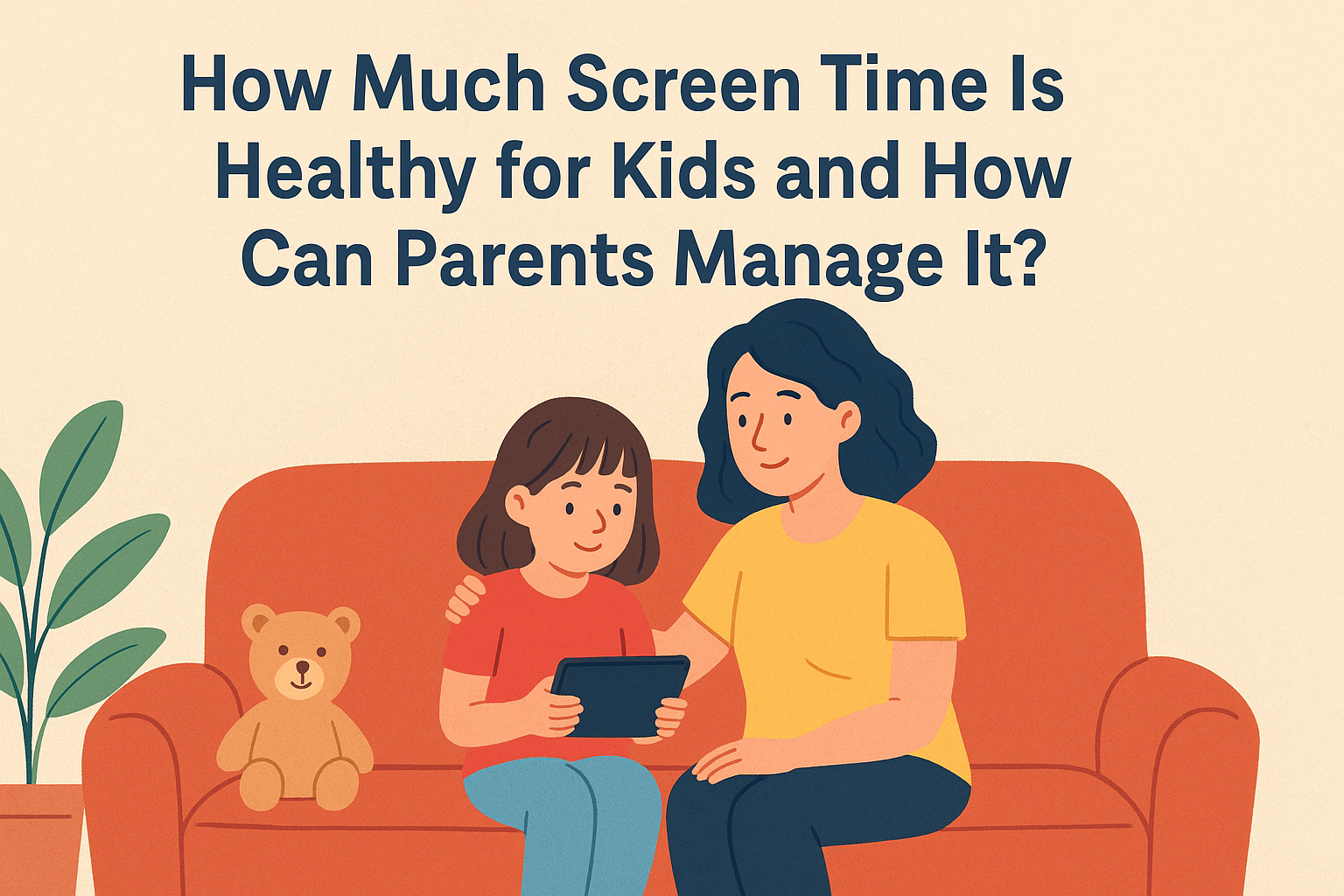Remember the first time you held your child in your arms? You promised to give them the world, to protect them, to always be there.
But nobody tells you how tiring it will feel when you’ve answered “Why?” 50 times in an hour. Or when they cry at the store for that one chocolate. Or when you feel guilty for saying “No” but also worried you’re being too soft.
Parenting has no perfect manual. But here’s the good news: children don’t need perfect parents. They need present parents.
This blog brings you 10 simple parenting tips—backed by everyday stories and Indian family wisdom. Easy things you can try today to raise kids who are not just smart, but truly happy and confident inside.
1. Listen With Your Heart
Children have their own small world—full of silly jokes, fears, secret wishes.
But busy parents often miss it while running behind tasks: “Did you do your homework?” “Eat your food.” “Don’t touch that!”
Story: One mother shared how her 6-year-old wanted to show his drawing. She was tired and said, “Later.” He quietly folded it and put it away. That night she found the paper. It said, “Mumma is busy.”
She promised herself—never again.
Try This Today:
Give your child 5 minutes of complete attention. No phone, no TV. Sit at their eye level. Listen. Nod. Smile. Watch how their face lights up.
2. Praise Progress, Not Just Perfect Marks
In many Indian homes, parents celebrate when kids come first in class. But what about the effort?
When you praise only the result, your child feels scared to fail. When you praise the effort—“You worked hard!” “You practiced every day!”—you raise a brave child.
Mini Tip:
Next time your child paints something or builds a messy Lego tower—don’t say, “What is this?” Say, “Wow! Tell me how you did this.”
3. Build Routines That Feel Safe
Children feel safe when they know what’s next—study time, play time, family time. A simple routine, part of gentle parenting, makes them calm and disciplined.
But don’t turn it into an army rule! Life happens—guests come, festivals pop up. Be flexible.
Try This:
Make a fun chart with your child. Let them draw or stick pictures for “Wake up, Brush, Study, Play, Sleep.” When they own it, they follow it.
4. Discipline Without Fear
Many of us grew up with the stick—“Do this or else…”
But modern parenting teaches that discipline means teaching, not scaring.
When your child misbehaves:
- Get down to their level.
- Use calm words: “What you did hurt me. We don’t hit.”
- Offer a choice: “You can say sorry or take a short time-out.”
A calm parent today raises a self-controlled child tomorrow.
Story: A mom shared that her daughter scribbled on the wall. Instead of shouting, she handed her paper and crayons and said, “Walls are not for drawing. Let’s make your art corner instead!” No drama, only learning.
5. Limit Screens Smartly
One big parenting fight: screens.
Children will always want more cartoons, games, YouTube. Total bans rarely work—they only create secret watching.
What works:
- Make clear family rules: “No screens during meals.”
- Keep them busy with real fun: outdoor play, art, storytime.
- Watch with them. Talk about what they see.
Golden Rule: Children do what they see. If you’re always on your phone—why would they put theirs away?
6. Play Every Single Day
Your child will not remember your fancy dinner or new sofa. They’ll remember that evening when you pretended to be a lion under the blanket.
Play makes children feel loved. Even 15–20 minutes of silly, screen-free play fills your child’s heart.
Ideas:
- Hide and seek indoors
- Make paper boats in the tub
- Dance together on your favourite song
- Play “teacher-teacher” or “doctor-patient”
No toys? No problem. Your time is the best gift.
7. Teach Gratitude—Little by Little
Gratitude doesn’t need big lectures. It grows in small daily moments.
At bedtime, ask:
- “What was the best part of your day?”
- “Who helped you today?”
- “Who did you help?”
When kids learn to say thank you for small things, they grow up happier and kinder.
8. Build Family Traditions
Traditions keep families together. They don’t need to be big or expensive. Even a Sunday walk, Friday popcorn movie, or singing a prayer together is part of spiritual parenting that creates a child’s sweet memory.
Example: One mother and daughter have a Sunday “chapati party.” They roll tiny chapatis together and laugh at the shapes.
These silly rituals become treasures for life.
9. Use Words That Heal
Words shape your child’s heart. Be careful what you say in anger.
Say more of these:
- “I’m proud of you.”
- “It’s okay to make mistakes.”
- “I trust you.”
- “You can tell me anything.”
These simple lines make your child feel safe to open up—even when they grow older.
10. Fill Your Cup Too
A tired, angry parent cannot pour love into a child. Take care of yourself. Even 10 quiet minutes—tea on the balcony, reading your favourite magazine, chatting with a friend—help recharge you.
Remember: A happy mother raises a happy child.
🌼 BONUS: Parent-Child Bonding Activities
Here are a few easy bonding ideas for your evenings or weekends:
- Story basket: Put 5 paper chits with story names. Pick one and tell it.
- Kitchen helper: Let your child wash veggies or roll roti.
- Gratitude jar: Decorate a jar. Drop one “thank you” note daily.
- Garden together: Plant something small. Watch it grow—just like your child!
🌟 Try This Reflection
Tonight, when your child sleeps, sit by them for a minute. Watch their calm face.
Say softly in your heart: “I am doing my best. I am enough.”
Because you are.
FAQs
1. How do I discipline without shouting?
Stay calm. Use short, clear words. Explain why something is wrong. Offer choices instead of threats.
2. My child doesn’t share feelings. What can I do?
Spend more one-on-one time. Play, listen, share your own feelings first. Trust grows slowly.
3. How much screen time is okay?
For kids under 5, try to limit it to one hour of quality content. Balance it with outdoor play, stories, and real fun.
4. My child doesn’t listen at all!
Children copy what they see. Speak softly, make eye contact. Give choices, not orders. Be consistent.
5. I feel guilty when I lose patience.
It’s normal. Apologise, hug your child, and forgive yourself. Parenting is learning every day.




2 thoughts on “10 Parenting Tips to Raise Happy, Confident Kids (That Actually Work!)”